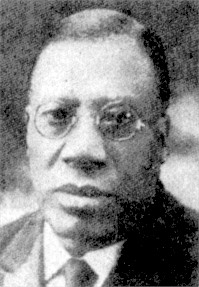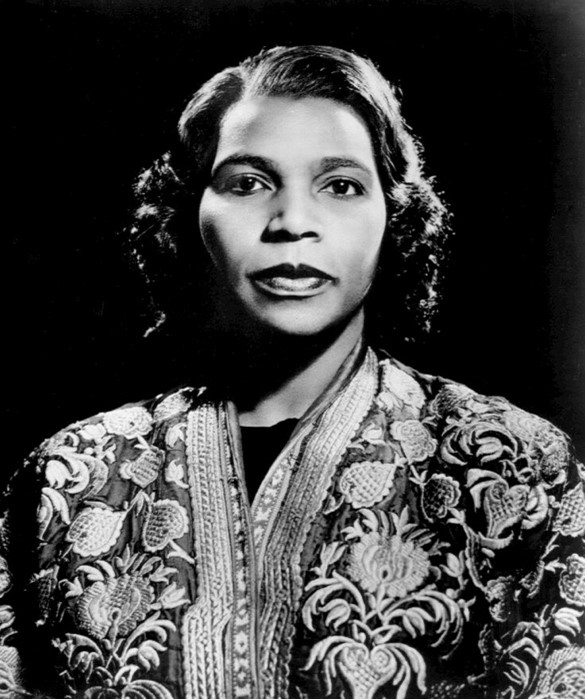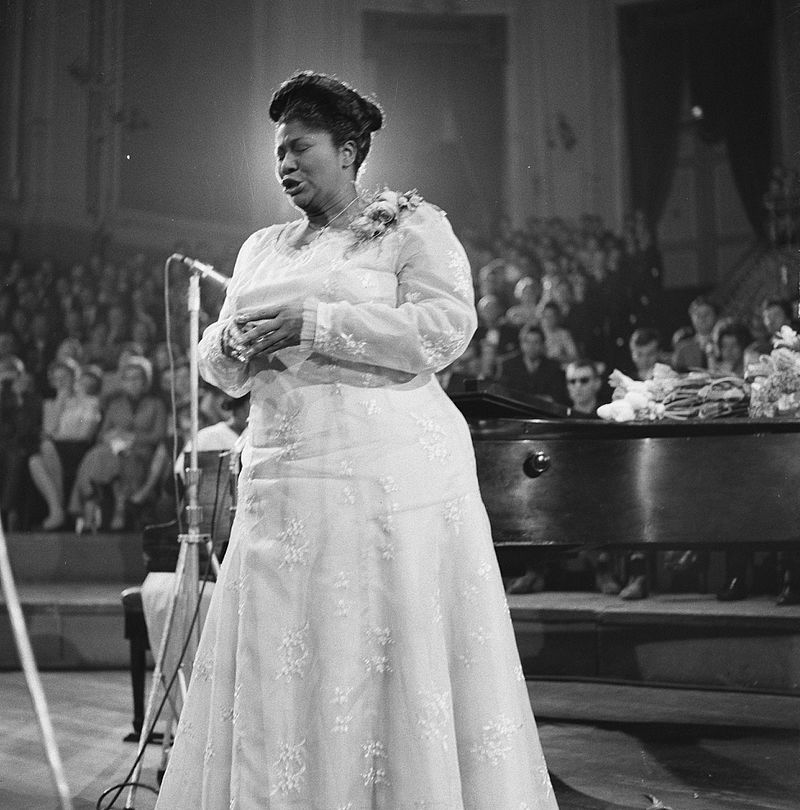
Spirituals, Hymns, and Anthems 3
As to one idea for the melodic origin of the contemporary version of "We Shall Overcome," it has been presented that it stems from the hymn "Sicilian Mariners" as sung by "Sicilian Mariners Hymn"). Also known as "Sicilian Mariners Hymn," it was sung in Latin as "O Sanctissima" (O Most Holy) by seafarers praying to the Virgin Mary. (Bobetsky 2014, 28) Here, "O Sanctissima" is sung by Marian Anderson from her album Christmas Carols.

Charles Albert Tindley
Yet still another African American spiritual credited as the origin of "We Shall Overcome" is the song "I'll Overcome Some Day" , written by Reverend Charles Albert Tindley and published in 1909. It is also said that the melody to this hymn stems from the slave song "No More Auction Block For Me." Resembling the Minister Richard Allen of the African Methodist Episcopalian Church and his work A Collection of Spiritual Songs and Hymns Selected from Various Artists (136 songs) published in 1801, Tindley's fifty or so hymns were favorites among his Black congregation. Listen to "No More Auction Block for Me" which is similar to "I'll Overcome Some Day") sung by Odetta.
Finally, Lucille Simmons often receives credit for the contemporary version of "We Shall Overcome." Simmons, an African American, sung it at a strike in 1945 among women tobacco workers in Charleston, South Carolina. Zilphia Horton, a White labor and civil rights activist from Arkansas, learned the song from these tobacco workers, and probably it was her that then taught it to Pete Seeger, the well-known White folk singer and civil rights activist:

We Shall Overcome by Charles Tindley, Lucille Simmons and Pete Seeger [ 00:00-00:00 ]
Consequently, it was Seeger who printed and published the song in People's Songs monthly bulletin in New York in 1947, of which he was the director at the time. Due to this publication, the song reached a wider audience, and in 1960 when introduced to a Southern Non-Violent Coordinating Committee conference in Nashville, it eventually became one of if not the most frequently sung freedom song during the civil rights movement, and rightfully earned the title as a civil rights anthem.
Mahalia Jackson's recording of "We Shall Overcome" is well received as an example of the spirit of singing African American spirituals, hymns, and vocal music in the African American style of performing. Her vocal dramatizationWhen a vocalist uses various sounds or vocal executions to add drama to a word or phrase. Examples of vocal sounds include full-throated, natural or whispering voice; loud or soft; vibrato; bending. Vocal executions include melisma or staccato; improvisation, accent; crescendo or diminuendo. is clear in numerous songs that particularly set out to express deep-felt emotions. Furthermore, it is the singer's intent to present a performance that is believable so that it touches a person's mind and heart, and gets deeply rooted in their soul. This was especially the case with singing freedom songs. During a meeting, march, or speech, singing in front of people whether as a soloist or group, it was as important to be taken seriously as an artist as it was to inspire and motivate people to have similar feelings. Mahalia Jackson illustrates the African American singing style of these songs. Specific vocal characteristics are identified in table 16.2 on the next page.
Martin Luther King, Jr.
I have a dream that my four little children will one day live in a nation where they will not be judged by the color of their skin but by the content of their character.
We Shall Not Be Moved
Oh I, shall not
I shall not be moved I shall not
I shall not be moved
Just like a tree planted by the water
I shall not be moved







